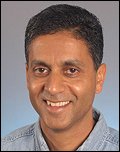We are seeing the emerging need for smartness in embedded systems that must address the (often conflicting) challenges of resiliency, energy, heat, cost, performance, security, etc. in the face of highly dynamic and autonomous operational behaviors and environmental conditions. Since terms related to “smartness” and "self-x" (e.g., self-awareness, self-adaptivity, autonomy, etc.) have been used loosely in many software and hardware computing contexts, I first present a taxonomy of "self-x" terms, and use this taxonomy to illustrate different levels of smartness in computing systems. A major attribute for smart embedded systems is the notion of self-awareness, that enables an embedded system to monitor its own state and behavior, as well as the external environment, so as to adapt intelligently. Towards this end, I present a smart embedded System-on- Chip (SoC) perspective using the CyberPhysical System-on- Chip (CPSoC) platform as an exemplar to demonstrate how embedded systems can achieve self-awareness. Unlike traditional MultiProcessor Systems-on- Chip (MPSoCs), CPSoC is distinguished by an intelligent co-design of the control, communication, and computing (C 3 ) system that interacts with the physical environment in real-time in order to modify the system’s behavior so as to adaptively achieve desired objectives and Quality-of- Service (QoS). The CPSoC design paradigm enables self-awareness (i.e., the ability of the system to observe its own internal and external behaviors such that it is capable of making judicious decisions) and (opportunistic) adaptation using the concept of cross-layer physical and virtual sensing and actuations applied across different layers of the hardware/software system stack. The closed loop control used for adaptation to dynamic variation – commonly known as the observe-decide- act (ODA) loop – is implemented using an adaptive, reflexive middleware layer. The learning abilities of CPSoC provide a unified interface API for sensor and actuator fusion along with the ability to improve autonomy in system management. I conclude with some thoughts on open challenges and research directions for smart embedded computing.
| Slides (t.pdf) | 6.13MiB |
Nikil Dutt is a Chancellor’s Professor of CS, Cognitive Sciences, and EECS at the University of California, Irvine. He received a PhD from the University of Illinois at Urbana-Champaign (1989). His research interests are in embedded systems, EDA, computer architecture and compilers, distributed systems, and brain-inspired architectures and computing. He has received numerous best paper awards and is coauthor of 7 books. Professor Dutt has served as EiC of ACM TODAES and AE for ACM TECS and IEEE TVLSI. He is on the steering, organizing, and program committees of several premier EDA and Embedded System Design conferences and workshops, and has also been on the advisory boards of ACM SIGBED, ACM SIGDA, ACM TECS and IEEE ESL. He is an ACM Fellow, IEEE Fellow, and recipient of the IFIP Silver Core Award.
Mon 13 JunDisplayed time zone: Tijuana, Baja California change
09:00 - 10:00 | |||
09:00 60mTalk | Smart Embedded Computing through Self-Awareness LCTES File Attached | ||
